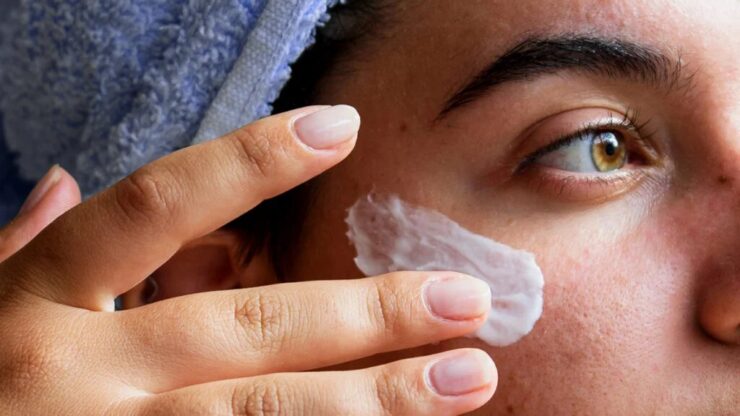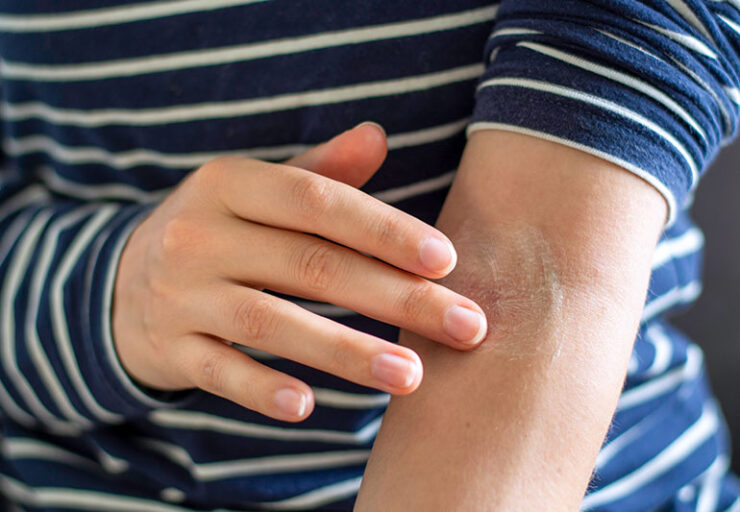Eczema, also known as atopic dermatitis, is a chronic skin condition characterized by red, itchy, and inflamed skin. It’s more prevalent among infants and children, although adults can have it too. The exact cause of eczema is unknown, but it’s believed to be a combination of genetic and environmental factors. The condition is often associated with other atopic disorders such as asthma and hay fever.
This condition isn’t just a mere skin annoyance; it can significantly impact an individual’s quality of life. Constant itchiness may lead to sleep disturbances, while visible symptoms may result in self-consciousness or embarrassment. Beyond the physical discomfort, the psychological toll that eczema can impose is often underestimated.
The Role of Eczema Cream in Managing Symptoms

Eczema creams play a crucial role in alleviating the distressing symptoms of eczema. For instance, if you choose to check this eczema cream, you will find out that they hydrate the skin, form a protective barrier, and often contain active ingredients that help reduce inflammation and itching. By restoring the skin’s moisture, they can also help maintain the skin’s protective function and prevent further damage.
Prescription products often contain corticosteroids or other anti-inflammatory agents that work to reduce inflammation and itch. Over-the-counter creams, on the other hand, might focus on hydrating the skin and restoring the skin’s barrier function. Both types play significant roles, and their usage is often intertwined based on the individual’s needs and the severity of their symptoms.
It’s important to note that while these products can manage symptoms, they do not cure the underlying condition. Regular and proper application is key to getting the maximum benefit. However, the question of how often you should apply these creams can be a bit complex, leading us to our next section.
Factors Influencing Application Frequency
Determining the frequency of eczema cream application can depend on several factors. First, the severity of the symptoms plays a significant role. Those with mild eczema may not need to apply creams as frequently as those dealing with severe symptoms.
The specific product used also matters. Different creams have varying strengths and potencies, which affects how often they should be applied.
Another influencing factor is the area of the body where the product is applied. Some areas, such as the face and the folds of the skin, may absorb it faster than others, necessitating more frequent applications. Environmental factors, like the weather and indoor heating, can also affect the skin’s dryness levels and thus the need for cream application.
Lastly, individual skin properties can affect application frequency. Some people naturally have drier skin than others, which may require more frequent moisturization. It’s a complex interplay of factors that necessitates individualized advice, which brings us to the importance of consulting with a healthcare professional.
Consultation with a Healthcare Professional

When dealing with a chronic condition like eczema, consultation with a healthcare professional is invaluable. They can accurately diagnose your condition, recommend suitable treatment options, and provide personalized advice on the frequency of cream application. This is essential because overuse of certain products, especially prescription ones, can lead to side effects.
During the consultation, it’s important to provide the healthcare professional with as much information as possible. This should include your symptoms, any triggers you’ve noticed, and how your skin typically responds to various treatments. This information will help the professional devise the best treatment plan for you.
In addition to prescribing treatment, healthcare professionals can also provide practical tips on managing your condition. These could include lifestyle modifications or specific skincare routines that could help alleviate your symptoms.
General Guidelines for Application
Despite the need for individualized advice, some general guidelines can help you better understand how often to apply eczema creams. First, emollient creams, which are primarily designed to hydrate the skin, should be applied at least twice daily or as often as necessary to keep the skin moisturized.
When using a prescription cream, it’s essential to follow the healthcare professional’s advice. Generally, these should be applied to the affected areas only and not more than twice a day. It’s also recommended to apply these products before using an emollient to allow the active ingredients to penetrate the skin effectively.
Lastly, remember that less is more. Using large amounts of the product won’t necessarily improve its effectiveness and may instead increase the risk of side effects. It’s about the consistency of application and targeting the right areas, rather than sheer quantity.
Adjusting Application Frequency Based on Severity
It’s crucial to remember that the severity of your symptoms can significantly influence the frequency of cream application. During a flare-up, when symptoms are more severe, you may need to apply your cream more frequently. But once the symptoms start to subside, you can gradually reduce the frequency.
It’s important to continue using your emollient even when the skin appears clear to maintain the skin’s moisture levels and help prevent future flare-ups. For prescription creams, you should follow the healthcare professional’s advice on whether to continue or stop the treatment once the symptoms improve.
Remember, every person’s experience with eczema is different, and what works for one person may not work for another. So, regular self-assessment is necessary to adjust the frequency of application based on your unique needs and responses.
Assessing the Effectiveness

Once you start using an eczema cream, assessing its effectiveness is an essential step. This not only includes monitoring the improvement in your symptoms but also noticing any potential side effects. If you don’t see any improvement within a few weeks, or if your symptoms worsen, it might be time to consult with your healthcare professional again.
Similarly, if you experience any adverse reactions, such as increased redness, itching, or burning sensation, you should immediately stop using the cream and seek medical advice. Keep in mind that not all creams work for everyone, and it may take some trial and error to find the right one for you.
End Words
As you can see, there is no one-size-fits-all answer to how often you should apply eczema cream. What matters most is that you find what works best for your skin and stick with it. Remember to talk to your doctor if you are experiencing any irritation or other issues related to the cream, as they may be able to help adjust your treatment plan accordingly. With the right approach and a bit of trial and error, relief from eczema symptoms is possible.

